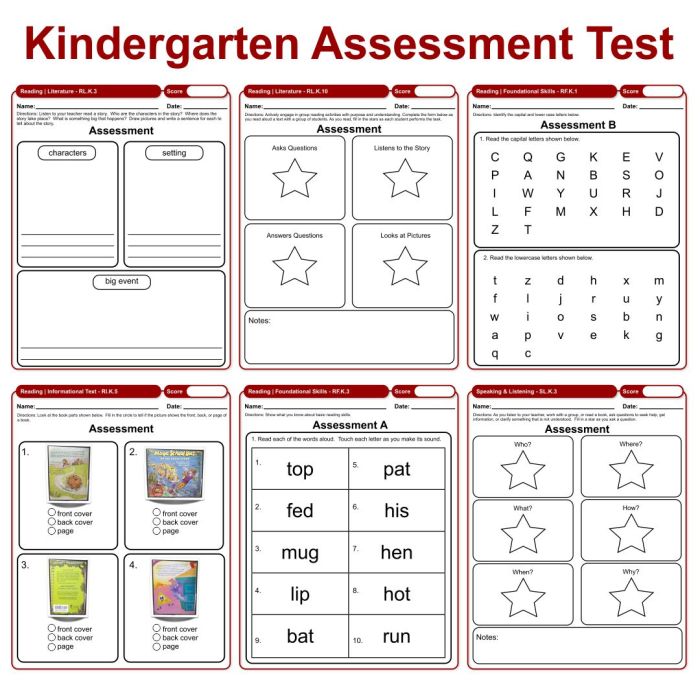Exámenes de repaso para child care – Child care review exams play a pivotal role in the professional development and certification of child care professionals. This comprehensive guide delves into the intricacies of these exams, providing invaluable insights into exam preparation, content coverage, and effective answering strategies.
As a child care professional, navigating the complexities of review exams can be daunting. This guide will equip you with the knowledge and strategies necessary to excel in these assessments, ensuring your success in the field of child care.
Types of Child Care Review Exams
Child care review exams are assessments designed to evaluate the knowledge and skills of individuals working in the field of child care. There are various types of these exams, each serving a specific purpose and offering unique benefits.
Certification Exams
- Conducted by independent organizations to certify professionals who meet specific standards.
- Examples: Certified Childcare Professional (CCP), Certified Early Childhood Educator (CECE)
- Benefits: Demonstrate professional competence, enhance job prospects, and support career advancement.
State-Required Exams
- Mandated by state governments to ensure child care providers meet minimum qualifications.
- Examples: Child Development Associate (CDA), National Child Care Credential (NCCC)
- Benefits: License or certify individuals for employment in child care settings, ensure compliance with regulations.
Professional Development Exams
- Voluntary assessments that allow child care professionals to demonstrate their knowledge and skills in specific areas.
- Examples: Infant and Toddler Specialist (ITS), School-Age Specialist (SAS)
- Benefits: Enhance professional growth, qualify for promotions, and demonstrate specialized expertise.
Exam Preparation Strategies
Effective exam preparation is crucial for success in child care review exams. Here are some proven strategies:
Efficient Studying
- Create a structured study plan that allocates time for each content area.
- Break down large topics into smaller, manageable chunks.
- Utilize active learning techniques like flashcards, practice questions, and mock exams.
Time Management
- Estimate the time needed for each topic and stick to the schedule.
- Use time-management tools like timers or to-do lists.
- Prioritize studying based on exam format and content areas.
Stress Reduction
- Practice relaxation techniques like deep breathing or meditation.
- Take breaks during study sessions to avoid burnout.
- Connect with other candidates or form study groups for support.
Content Covered in Child Care Review Exams

Child care review exams typically cover a range of content areas that are essential for effective child care practice:
Child Development and Learning
- Cognitive, physical, social, and emotional development of children from birth to adolescence.
- Developmental theories and milestones.
- Appropriate learning activities and environments.
Child Guidance and Discipline
- Effective communication and behavior management techniques.
- Positive discipline strategies.
- Understanding and addressing challenging behaviors.
Health, Safety, and Nutrition
- First aid, CPR, and emergency procedures.
- Nutrition guidelines and meal planning.
- Maintaining a safe and healthy environment.
Professionalism and Ethics, Exámenes de repaso para child care
- Professional conduct and ethical responsibilities.
- Confidentiality and privacy.
- Cultural sensitivity and diversity.
Exam Formats and Question Types
Child care review exams vary in format and question types, but common formats include:
Multiple-Choice Questions
- Present a question with multiple answer choices.
- Candidates select the best answer.
- Strategies: Read the question carefully, eliminate incorrect answers, and guess if necessary.
True/False Questions
- Present a statement as either true or false.
- Candidates indicate whether the statement is correct or incorrect.
- Strategies: Determine the key concept, identify any qualifiers, and consider the implications of both options.
Essay Questions
- Require candidates to write a short essay on a specific topic.
- Candidates demonstrate their knowledge, understanding, and critical thinking skills.
- Strategies: Plan the essay, organize the ideas logically, and write clearly and concisely.
Strategies for Answering Exam Questions
Effective exam-taking strategies can significantly improve performance:
Analyzing Questions
- Read the question carefully and identify the key concepts.
- Determine the type of question (multiple-choice, true/false, essay).
- Break down complex questions into smaller, more manageable parts.
Process of Elimination
- Eliminate obviously incorrect answer choices in multiple-choice questions.
- Narrow down options by considering the most relevant information.
- Guess if necessary, but only after eliminating as many incorrect choices as possible.
Logical Reasoning
- Use logical reasoning to determine the correct answer in true/false questions.
- Consider the implications of both options.
- Identify any assumptions or biases in the statement.
Time Management and Exam-Taking Tips: Exámenes De Repaso Para Child Care

Effective time management and exam-taking strategies are crucial for success:
Time Allocation
- Estimate the time needed for each question based on its difficulty.
- Allocate more time to essay questions and complex multiple-choice questions.
- Adjust the time allocation as needed during the exam.
Prioritization
- Prioritize questions based on their importance and difficulty.
- Answer the easiest questions first to build confidence.
- Skip difficult questions and return to them later if time allows.
Staying Calm
- Take deep breaths and stay calm during the exam.
- Avoid panic and rushing through questions.
- Focus on the present moment and the task at hand.
Common Queries
What are the different types of child care review exams?
Child care review exams vary depending on the purpose and requirements of the specific exam. Common types include certification exams, state-required exams, and professional development exams.
How can I effectively prepare for a child care review exam?
Effective exam preparation involves studying efficiently, managing time effectively, and reducing stress. Utilize study guides, online courses, and practice exams to enhance your understanding of the content areas.
What content areas are typically covered in child care review exams?
Child care review exams typically cover a range of content areas, including child development, health and safety, nutrition, curriculum planning, and professional ethics.
What are some strategies for answering exam questions effectively?
Analyze exam questions carefully, identify key information, and use process of elimination and logical reasoning to answer questions accurately. For essay questions, write clear and concise answers that demonstrate your understanding of the topic.